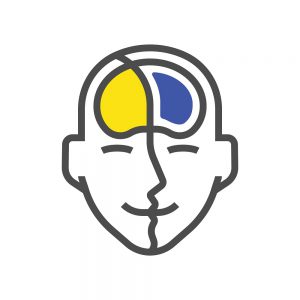In this post, we are going to discuss five other disorders which are similar to autism in children which often confuses people, so here we will be providing the exact symptoms of each of this disorders so that a parent can better know about the problem that their child is facing.
With a little observation of the child’s behavior one can detect what type of developmental disorder is present in the child or can show its symptoms in the future, therefore it is very essential for a parent to keep an eye on the child’s activities.
Here are the five most common disorders in kids that are often confused with Autism:-
1 – Schizophrenia
It is a very strange kind of affliction that is confused with autism because in both the cases the child shows erratic behavior especially when they are in presence of other people but the reason for their unusual way of conducting themselves are quite different in both of the cases.
Schizophrenia affects the person’s sensory perception in a way that they perceive reality distortedly, which mostly includes hallucinations.
Unlike the children who are affected by autism, those kids who have Schizophrenia shows symptoms such as hearing unreal voices, seeing illusions, having false beliefs and confused thinking.
2 – Intellectual Disability (ID)
Another disorder which shows similar symptoms like autism is the intellectual disability which makes a kid to lag behind other children due to their inability to perform various intellectual functions.
These kids are slow learners and they find it very difficult to process simple information and due to this they behave unusually and fail to perform day to day life activities like any other kid of their age does.
This disorder mainly affects two areas of a kid’s life:-
a) Intellectual Functioning
This concerns with the ability to learn, reason, decision making and problem-solving, so a kid with this kind of disorder finds it hard to function in the society due to the lack of these four important skills.
b) Adaptive Behaviors
This is a very important aspect of a kid’s life because it allows them to adapt to new surroundings and communicate with other people but due to this disorder the child fails to behave normally under new circumstances and social events.
3 – Obsessive Compulsive Disorder (OCD)
OCD is a mental disorder which makes a person get obsessed and paranoid about little things.
A kid who has OCD can be seen doing the same thing repeatedly without finding satisfaction. The commonly seen obsessions of such patients are washing hands repeatedly, checking door locks multiple times, counting things etc. Due to their impatient behavior and fears, these kids also often suffer from anxiety issues.
Obsessions may include things like fear of germs which makes a kid to keep washing their hands unnecessarily and taking bath a lot more than usual.
This can also be seen as the aggression a kid might show towards others and themselves.
The most commonly seen obsession of people who have this disorder is their unusual requirement of keeping things in a perfect order and cleaning stuff unnecessarily.
The symptom that confuses people about whether a child is affected with autism or OCD is that both the disorders make a kid obsessive about certain things, however, in the case of autism, the obsession is uncommon and unpredictable.
4 – Selective Mutism
This is an anxiety-related disorder from which a lot of children are affected and this especially makes it difficult for them to communicate properly in the presence of other people.
Unlike autistic kids who are unable to express their feelings in all kind of situations, kids with selective mutism find it difficult to communicate under circumstances where they are uncomfortable or feel unsecured.
This disorder can be highly debilitating for a kid because they find it stressful to initiate a conversation or respond to unfamiliar people, they can also have social phobia.
5 – Some Other Developmental Disabilities Similar to Autism
Apart from these four disorders, there are many other developmental disorders that can be confused with autism.
These disorders can be physical or mental, many of this disorders are related to the complications that might have happened during the birth of the child or when they were in their mother’s womb.
Some disorders can be related to sensory perceptions and hence they are confused with autism. Genetic or chromosome abnormalities can also cause disorders similar to autism-like Down’s syndrome and Rett syndrome.
Due to the similarties between the disorders, kids suffering from attention deficit disorder are also often confused with autistic kids. The developmental disorder that is mostly confused with autism is Asperger’s Syndrome, though they are two different afflictions yet some of the methods can work for both of these disorders. This is why we highly recommend the online course named “Parenting Kids with Asperger’s syndrome and Autism” because it provides some great methods to help a kid who is affected by either of these disorders.
Since it is very difficult to identify a developmental disorder we highly advise you to take medical help if you suspect that your kid is showing any of the symptoms related to such afflictions.
Thank you so much for visiting our site, we hope you found this content useful. We would love to hear your views, suggestions, and opinions about this post, so kindly share your thoughts with us by commenting below.
For any queries, drop us a message using our contact page.
Thanks for posting,
I find your list extremely clear and educational. There were a couple of conditions which particularly caught my attention. With regards to ADD – what are the causes? Are they more environmental or genetic, and in which proportions? If it’s more environmental, then, perhaps, there is something parents can do at an early age to mitigate its effects or stop it from ever emerging? Selective mutism seems like a sneaky one and tough to identify. Is there a test to ID it in kids? And last but not least, what can be done by parents to alleviate its effects, or reverse it altogether?
Thanks so much! Your article gave me much food for thought.
Hello Norman,
If the reasons for these disorders were that easy to find then we might not be facing this much of trouble in eradicating these afflictions one for ever. It can be genetic or due to complications during birth, we are only able to work on the symptoms so far and maybe we will be able to come up with solutions that work on the causes in the future.
Hi there,
This is a very interesting article about different child disorders. I know about autism and the spectrum.
What I also find interesting is that children normally develop autism and other disorders after having vaccinations for childhood diseases.
What I want to know is, are there natural remedies like herbalism or homeopathy to alleviate symptoms? More research needs to be done in this area don’t you think?
Hey Stella,
Thank you for your comment. We are not aware about the side-effects of vaccinations which result into disorders like autism, we cannot speak on this subject without proper information about it. There might be natural remedies for these disorders but none of them have shown any significant effect on children who have autism.
The best way to deal with autism is to provide these kids with an environment which is conducive for the development of their brain.
Thank you for another great aritcal it gave a lot of good information. When you mentioned Social Phobia Is that a disorder cosidered to be mental health related. And how do I find out which of this disorders are related to complication at birth or in the womb. Social disorder is a very important subject that we need to keep an eye on so that we can protect all you. Thank you again.
Hello Quinn,
Social phobia is not a disorder in itself, but it is resulted from certain type of psychological problems. In order to find out about the birth related afflictions you will have to take your child for medical examination because such problems cannot be determined by observing their behavior alone.